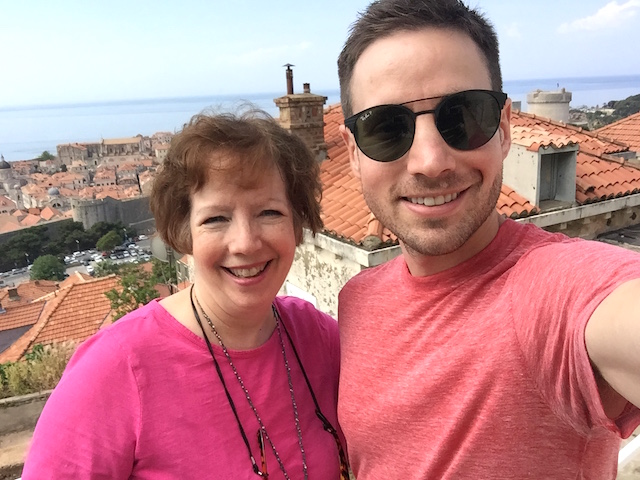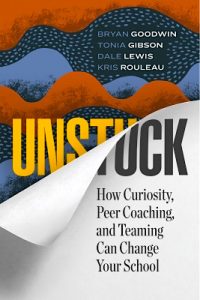 My phone rang. “Do you want me to come and meet you somewhere?” Tears streaking down my face, I nodded. Realizing and that he couldn’t see me, I responded in the affirmative and relayed my location to the caller – my son, Will.
My phone rang. “Do you want me to come and meet you somewhere?” Tears streaking down my face, I nodded. Realizing and that he couldn’t see me, I responded in the affirmative and relayed my location to the caller – my son, Will.
I was in Dubrovnik, Croatia, a beautiful town with a rich history. Standing outside of the walls of Dubrovnik’s Old Town on an overcast day, I waited for Will, feeling frustrated and not a little bit disgusted at my seeming inability to navigate. My wayward sense of direction had caused me to miss my planned day trip to Montenegro.
As I waited for my son to come to the rescue, it dawned on me that our roles were reversing. On this morning, he was the adult figure and I was the lost child. At that moment, my perspective shifted as I fully realized and appreciated his ability to thrive in what, to me, was a daunting task—living and working abroad.

Shaking my head, I wondered how he did it. What prepared him for the life of a prospering, nomadic executive, traveling from country to country across the world with only a suitcase and backpack containing his laptop and other essentials?
The answer, I’ve learned, is adaptive expertise.
When the Answers Aren’t Simple
Adaptive expertise, defined by Harvard’s Ron Heifetz, is the ability to address or respond to an issue or situation where there is no simple answer. Heifetz elaborates:
Adaptive work is required when our deeply held beliefs are challenged, when the values that made us successful become less relevant, and when legitimate yet competing perspectives emerge. We see adaptive challenges every day at every level of the workplace – when companies restructure or reengineer, develop or implement strategy, or merge businesses.
We see adaptive challenges when marketing has difficulty working with operations, when cross-functional teams don’t work well, or when senior executives complain, “We don’t seem to be able to execute effectively.” Adaptive problems are often systematic problems with no ready answers. (“The Work of Leadership,” Harvard Business Review, January-February 1997)
Will’s job as director of global operations at Remote Year requires him to be a flexible planner, an excellent communicator, and adaptive in his travel and lodging needs. And he manages his crazy travel schedule very well.
How did he learn how to be so adaptive? When I asked, he cynically responded, “Not in school.”
 That’s why I’m very interested in the current book I’m reading, Unstuck: How Curiosity, Peer Coaching, and Teaming Can Change Your School. Lead author Bryan Goodwin is the President and CEO of McREL, where his co-authors also work.
That’s why I’m very interested in the current book I’m reading, Unstuck: How Curiosity, Peer Coaching, and Teaming Can Change Your School. Lead author Bryan Goodwin is the President and CEO of McREL, where his co-authors also work.
While I’m only one-third through the book, I’ve found it to be practical, on target, and relevant to the times in which we are living — where our children and their children will have jobs that we cannot even imagine. Or where – thinking about John Norton’s recent ABPC blog post – the spread of artificial intelligence and smart machines may totally change the meaning of work.
Goodwin and his colleagues believe that improving schools so that both teachers and students are engaged and motivated is an adaptive challenge. After studying school reform initiatives in the US and across the world, the authors decided to focus on the improvements made in Australia over the past ten years, specifically in the state of Victoria, home to Melbourne.
Watching school improvement succeed – and then plateau – in England in recent decades, educators in Australia realized that turning around a school and ensuring continuous improvement required evolving flexible strategies and actions over time.
What was needed was a different way of thinking about reform—not another prescribed approach, but one that could truly increase teachers’ professional capacity, inspiring and helping them to help one another develop better teaching practices that would aim to increase both student learning and motivation (p. 22)
 Education leaders in Victoria decided to focus on transforming schools from the inside out rather than from the top down. Starting with teachers, they identified the most effective classroom educators in a school and started chronicling their work and learning from them. And they didn’t stop there. They realized that to motivate children and teens, they needed to first listen to students and discover what made them curious and could result in self-directed learning.
Education leaders in Victoria decided to focus on transforming schools from the inside out rather than from the top down. Starting with teachers, they identified the most effective classroom educators in a school and started chronicling their work and learning from them. And they didn’t stop there. They realized that to motivate children and teens, they needed to first listen to students and discover what made them curious and could result in self-directed learning.
As I turn the pages of Unstuck, I think about my son, and all our school-aged young people across Alabama. Will our schools learn how to prepare students who are confident and self-directed, with the adaptive expertise that all the momentous change just ahead will certainly require?
I’ve become an eager reader of this book! I’m really looking forward to learning more about the progress made in Australia. And you can be sure I’ll share what I find out with you and other readers of this blog.
Cathy Gassenheimer is the Executive Vice President for the Alabama Best Practices Center at the A+ Education Partnership
More About the Book
McREL President Bryan Goodwin is the co-author of UNSTUCK: How Curiosity, Peer Coaching, and Teaming Can Change Your School. Click here to see the TOC and excerpts from the book.
Webinar: Engaging Every Learner with Curiosity
If you (or your school) have an ASCD membership, watch Goodwin’s recent webinar (5/22/18) discussing the book and McREL’s research in Australia. Slides available for download.

0 Comments on "Travels in Croatia: Thinking about Our Students and Adaptive Expertise"